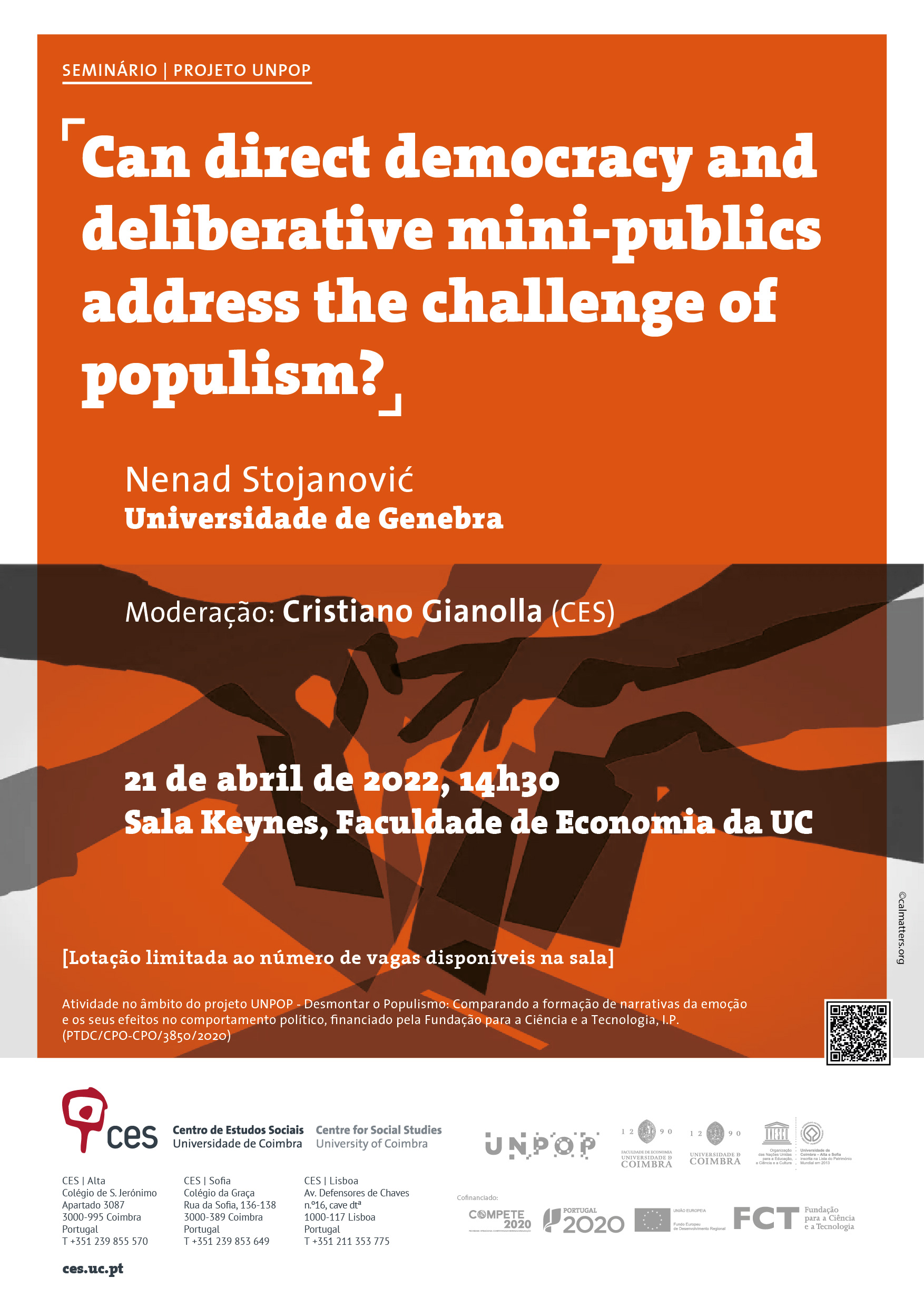Seminário | UNPOP
Can direct democracy and deliberative mini-publics address the challenge of populism?
Nenad Stojanović (University of Geneva)
21 de abril de 2022, 14h30
Sala Keynes, Faculdade de Economia da UC
Moderação: Cristiano Gianolla (CES)
Apresentação
It has become commonplace to say that democracy is in crisis. While this assertion is a matter of debate, it clearly concerns a particular (and today predominant) form of democracy – representative democracy. Hence a large scholarly debate has developed on how to reform democracy in order to promote citizen participation and to enhance the legitimacy of democratic institutions. In the field of political theory the dominant answer has been deliberative democracy. Surprisingly, few political theorists have explored the potential of bottom-up direct democracy (DD), that is, a frequent use of popular initiatives and facultative referendums.
One of the reasons is that many scholars express a genuine concern that DD might give rise to populist demands (at the level of input), to populist decisions (at the level of output) and contribute to a rise in populist politicians, movements and parties.
By contrast, I will defend a theory of DD that is sufficiently robust to resist the charge of populism. I will show that, under certain conditions (both theoretical and empirical), far from being an easy tool in the hands of populist leaders, DD can actually structurally undermine populist rhetoric and support institutions of representative democracy. The bulk of the paper consists in elaborating the conditions under which a non-populist DD can be successful. I will also suggest a deliberation-driven innovation of DD, inspired by randomly-selected deliberative citizens’ panels (“the Oregon model”) that take place before an actual popular vote and which recommendations are made available to voters.
Nota biográfica
Nenad Stojanović is a SNSF Professor of Political Science at the University of Geneva. His main research topic is democracy, with a focus on political institutions for multicultural societies. In recent years he has conducted numerous “deliberative mini-publics” (i.e. citizens’ assemblies selected via lot) in several Swiss cantons and cities, and has collaborated in similar projects in Bosnia and Herzegovina. He is the author of Dialogue sur les quotas: Penser la représentation dans une démocratie multiculturelle (Presses de Sciences Po 2013; Il Mulino 2014) and Multilingual Democracy: Switzerland and Beyond(ECPR Press 2021).
O projeto UNPOP é coordenado por Cristiano Gianolla e Lisete Mónico e acolhido institucionalmente pelo Centro de Estudos Sociais e pelo CINEICC - Centro de Investigação em Neuropsicologia e Intervenção Cognitivo-Comportamental - da Universidade de Coimbra, e conta com o financiamento da Fundação para a Ciência e a Tecnologia, I.P. (PTDC/CPO-CPO/3850/2020)


